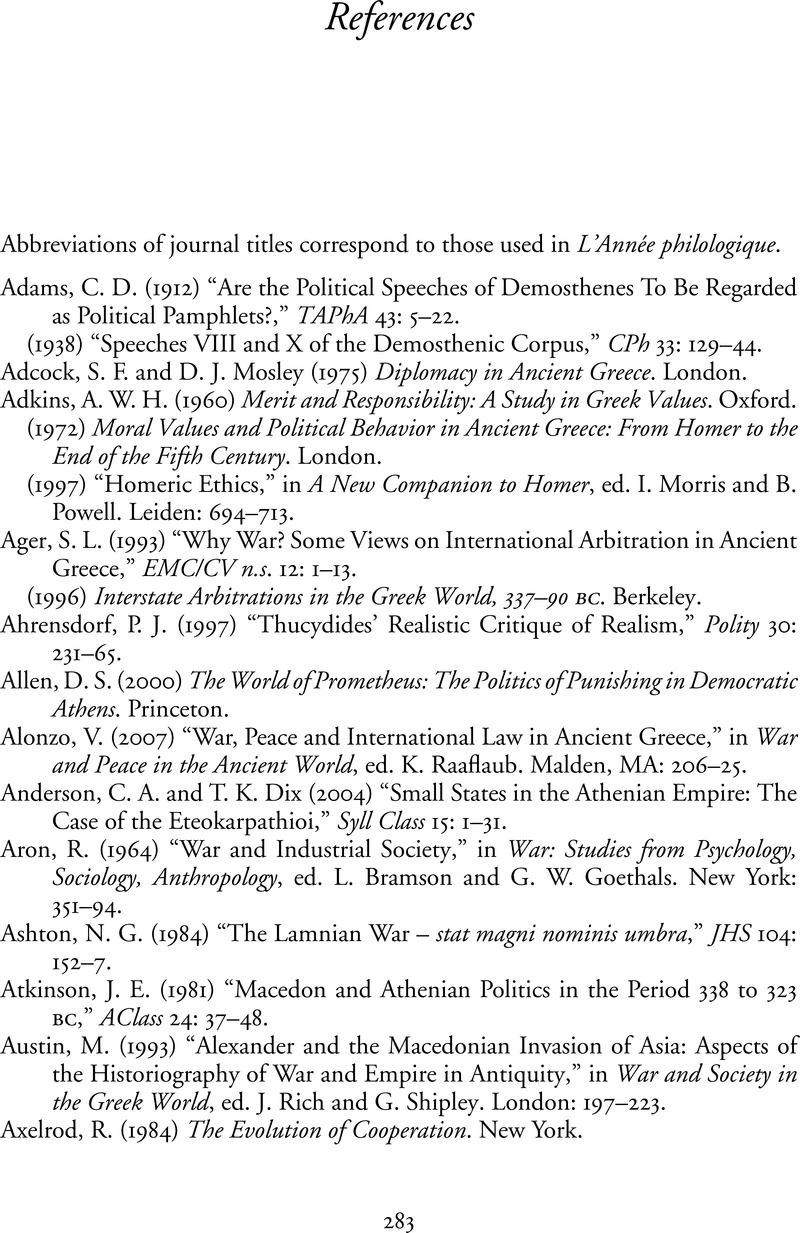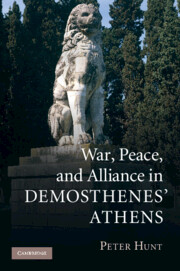Book contents
- Frontmatter
- Contents
- Acknowledgments
- Abbreviations, translations, and inscriptions
- 1 Introduction
- 2 Economics
- 3 Militarism
- 4 The unequal treatment of states
- 5 Household metaphors
- 6 Defense and attack
- 7 Calculations of interest
- 8 Reciprocity
- 9 Legalism
- 10 Peace
- 11 Conclusion
- Appendix 1 Speeches and texts
- Appendix 2 Plato and Aristotle on the causes of war
- Appendix 3 Claims of service
- References
- Index
- References
References
Published online by Cambridge University Press: 05 May 2010
- Frontmatter
- Contents
- Acknowledgments
- Abbreviations, translations, and inscriptions
- 1 Introduction
- 2 Economics
- 3 Militarism
- 4 The unequal treatment of states
- 5 Household metaphors
- 6 Defense and attack
- 7 Calculations of interest
- 8 Reciprocity
- 9 Legalism
- 10 Peace
- 11 Conclusion
- Appendix 1 Speeches and texts
- Appendix 2 Plato and Aristotle on the causes of war
- Appendix 3 Claims of service
- References
- Index
- References
Summary

- Type
- Chapter
- Information
- War, Peace, and Alliance in Demosthenes' Athens , pp. 283 - 308Publisher: Cambridge University PressPrint publication year: 2010



